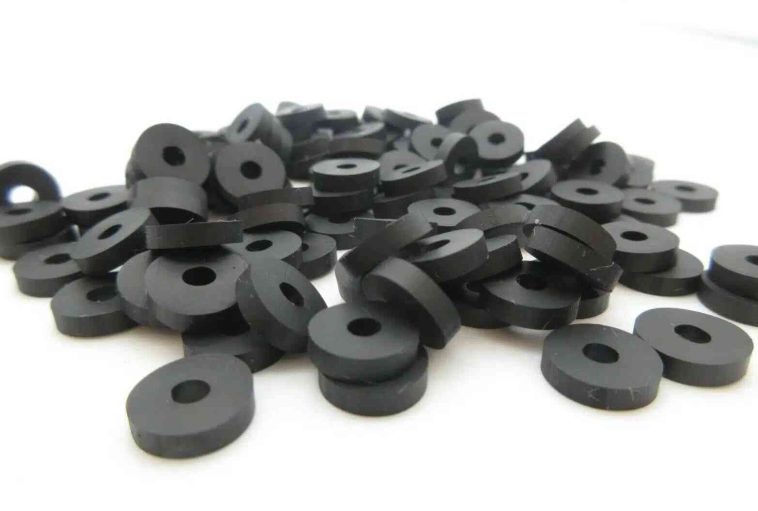When it comes to sealing and protecting equipment in demanding conditions, neoprene gaskets often steal the spotlight—and for good reason. If you’re dealing with extreme temperatures, moisture, chemicals, or other environmental challenges, these durable components are your best bet. But what exactly makes neoprene such a standout material?
What Makes Neoprene Special?
Neoprene is a type of synthetic rubber that’s been around for decades, and its reputation for toughness is well-earned. It’s not just any rubber—it’s designed to hold up under pressure, literally and figuratively. Whether you’re working in a manufacturing plant, a marine setting, or any industry with demanding conditions, neoprene gaskets deliver unmatched reliability.
Think about it: you need gaskets that can seal tightly and stay intact, no matter what they’re exposed to. This is where neoprene shines. Its unique chemical composition gives it a blend of flexibility, durability, and resistance to environmental hazards.
The Key Benefits of Neoprene Gaskets
Let’s break down the reasons neoprene gaskets are a go-to solution for tough applications:
1. Excellent Resistance to Temperature Extremes
Harsh environments often mean dealing with extreme heat or cold. Neoprene gaskets are built to handle both ends of the spectrum. They perform well in temperatures ranging from -40°F to 230°F, making them ideal for applications where conditions can quickly shift.
2. Strong Resistance to Chemicals
Neoprene is highly resistant to oils, fuels, and many types of chemicals. If your equipment operates in environments where exposure to such substances is inevitable, these gaskets will help prevent leaks and maintain their integrity.
3. Weatherproof and UV Resistant
Outdoor applications? No problem. Neoprene gaskets are incredibly weatherproof and resistant to UV rays. Unlike some materials that degrade under sunlight, neoprene holds up, ensuring long-term performance in outdoor settings.
4. Waterproof Properties
Moisture is a common challenge in harsh environments, but neoprene’s waterproof nature makes it a reliable choice. It creates a tight seal that prevents water intrusion, which is especially valuable in marine or outdoor applications.
5. Durability Under Pressure
Neoprene gaskets don’t just resist environmental factors—they also handle physical stress. They maintain their shape and flexibility under compression, ensuring consistent performance over time.
Where Are Neoprene Gaskets Used?
You might be wondering, “Where exactly do neoprene gaskets fit into the picture?” The answer is just about anywhere conditions demand high performance. Here are a few examples:
- Automotive and Aerospace Applications: Neoprene gaskets are used in engines, fuel systems, and other components where resistance to heat and chemicals is critical.
- Marine and Offshore Industries: Thanks to their waterproof and UV-resistant properties, they’re a natural fit for boats, docks, and offshore equipment.
- Manufacturing and Industrial Settings: Neoprene gaskets can be found in machinery, piping systems, and other equipment exposed to extreme temperatures or chemical exposure.
- HVAC Systems: In heating, ventilation, and air conditioning systems, neoprene gaskets ensure air-tight seals and resist temperature fluctuations.
The versatility of neoprene gaskets is a testament to their toughness and adaptability. Whatever your industry, they’re likely to meet your needs.
Choosing the Right Neoprene Gasket
Not all neoprene gaskets are created equal, so how do you choose the right one? It comes down to understanding your specific requirements. For example:
- Thickness and Density: Do you need a soft, flexible gasket or a denser one for high-pressure applications?
- Chemical Exposure: Will the gasket come into contact with fuels, oils, or other chemicals? Make sure it’s rated for those substances.
- Temperature Range: Consider the operating temperatures your equipment will face to ensure the gasket can handle it.
Working with a reliable supplier can make all the difference here. They’ll help you navigate these factors and ensure you get a gasket that performs as expected.
Installation and Maintenance Tips
A gasket is only as good as its installation. Even the best neoprene gasket won’t perform properly if it’s not installed correctly. Here are a few quick tips to get the most out of your gaskets:
- Ensure a Clean Surface: Before installation, make sure the mating surfaces are clean and free of debris.
- Check for Proper Alignment: Misaligned gaskets can cause leaks or compromise performance. Take the time to position them correctly.
- Don’t Over-Tighten: Applying too much pressure can crush the gasket and reduce its effectiveness. Follow the manufacturer’s torque recommendations.
- Inspect Regularly: Even durable neoprene gaskets can wear out over time. Regular inspections can catch small issues before they become big problems.
By taking these simple steps, you’ll extend the life of your gaskets and keep your equipment running smoothly.
Is Neoprene the Right Choice for You?
If you’re dealing with tough environmental conditions, neoprene gaskets are hard to beat. Their combination of durability, flexibility, and resistance to a wide range of factors makes them a smart choice for countless applications. But like any component, the key to success lies in selecting the right type and ensuring proper installation.
So, is neoprene right for your next project? If you’re still unsure, it’s worth consulting with an expert who can guide you based on your specific needs. Whether you’re sealing a pipeline, protecting an engine, or waterproofing equipment, neoprene gaskets offer a proven solution that won’t let you down.
Why Tough Environments Demand Smart Solutions In challenging conditions, you need materials that can stand up to the test—and neoprene gaskets are designed to do just that. Their versatility, toughness, and reliability make them an excellent choice for a wide range of industries and applications. If durability and performance are non-negotiable for your equipment, neoprene gaskets are a solution worth considering.





